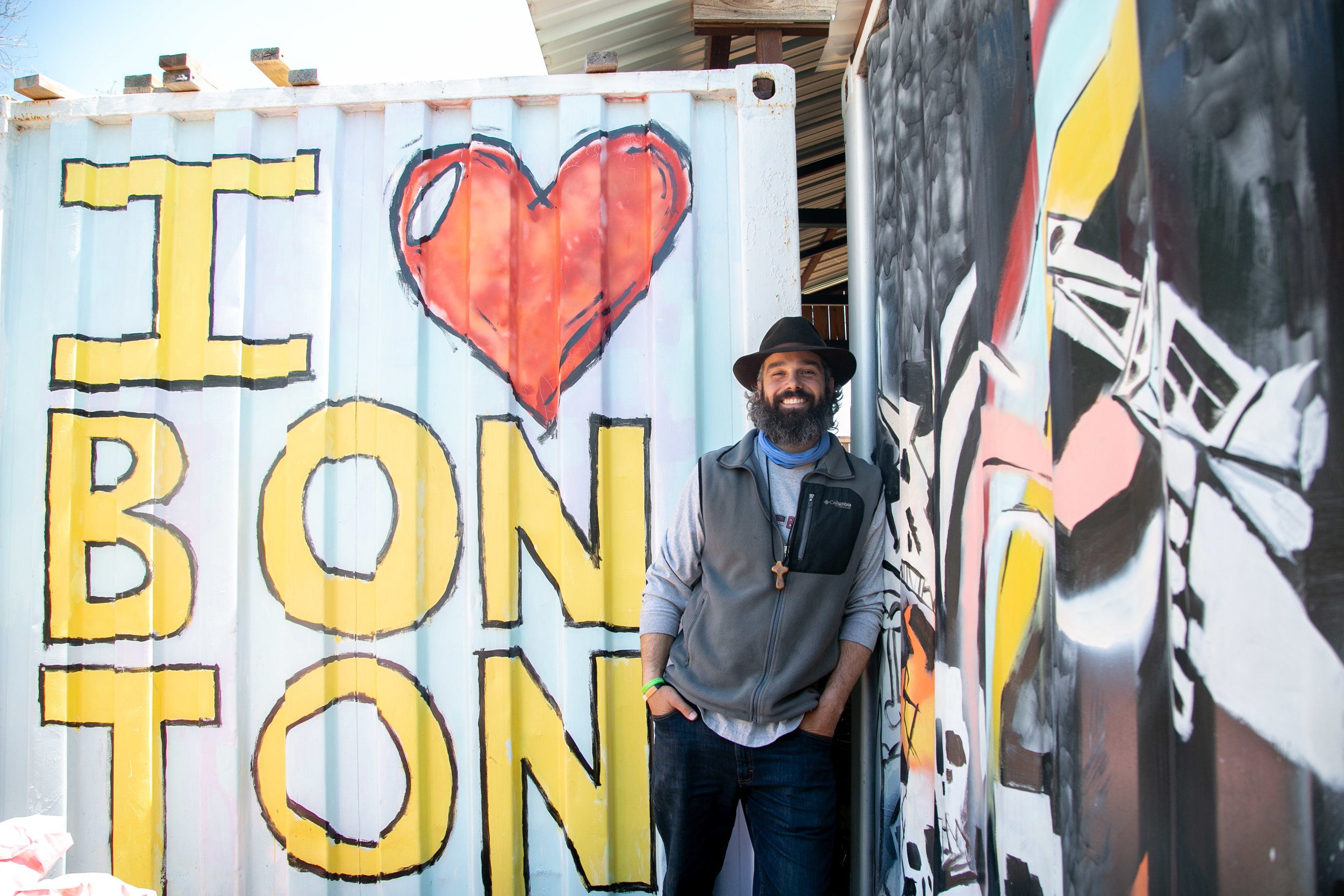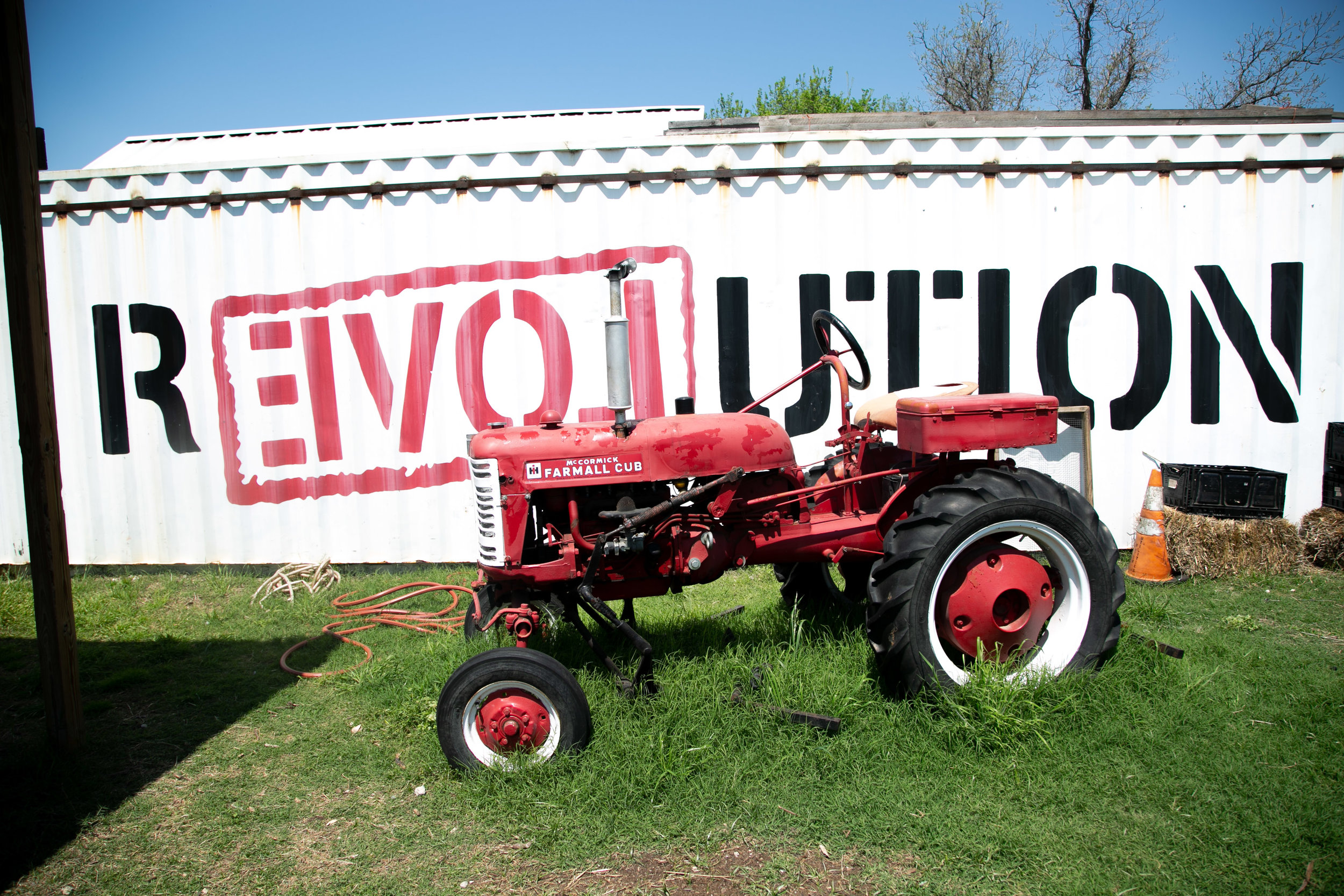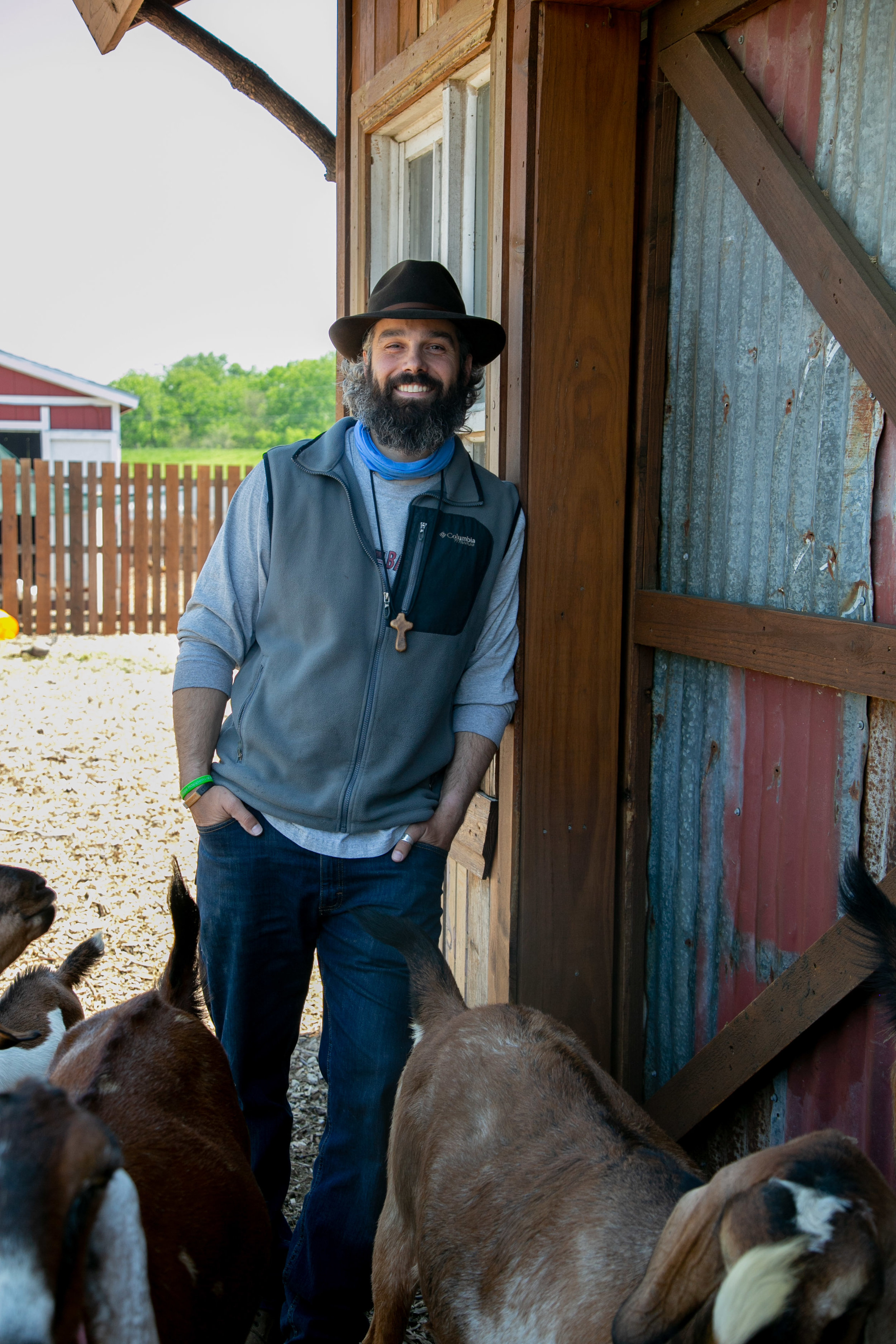Trog Trogdon grew up in a small town in Missouri with big dreams for his future. After graduating from high school, he moved to North Carolina for college, where he planned to study business in order to equip him with the skills he needed to succeed in the world of finance. Like any good business major, once Trog completed his undergraduate studies he moved on to acquire his MBA. By 2002 he was ready to live the corporate dream: he moved to Dallas and began living out his exciting career in finance.
“But the bottom line is that God had other plans,” Trog said. “I had grown up in the church, but I fell in love with Jesus all over again in 2002.” When he was not in the office, Trog had felt compelled to start serving in various roles at his church. He met a pastor, Mike Fechner, who invested in him and served as a mentor. Under Mike’s guidance, Trog made a radical career switch from the business world to a position in ministry at a local church. Mike continued to invest in Trog, and he specifically noted his passion serving the poor. Mike connected him with a friend, Daron Babcock, who was using a small garden and aquaponics unit on the side of his house to connect with and serve the underprivileged neighbors in his community.

“After meeting him, I instantly loved his heart and vision for loving his neighbors & making disciples,” Trog said. “ I said immediately, ‘I’m cashing in all my chips, I’m going to raise support like a missionary would, and I am going to start working full-time with you.’”

What began as a small project in Daron’s garden grew into what the city of Dallas now knows and loves as Bonton Farms. Using the organization’s urban farm as the crux of the program, Bonton Farms strives to provide fresh foods to the community, create opportunities for meaningful employment, and ignite hope in a neighborhood that has struggled to survive. Community members, employees (most of whom are from Bonton), and volunteers alike work together to tend the gardens, harvest crops, and assist with the animals that live on the farm. The project has grown to encompass three properties totaling 41 acres, and in addition to fruits and vegetables, the team raises animals and bees.
Things weren’t always so desolate in Bonton. Researchers believe that the name of the neighborhood was derived from the French term bon ton, meaning high society or fashionable style. For many years in the early 1900s the neighborhood had an arts and culture district that mirrored the community in nearby Bishop Arts. But over time, especially nearing the mid-1940s, the rise of segregation and racism led to housing projects, limited resources, and a climate that created a food desert, which is defined by the USDA as “a part of the country vapid of fresh fruit, vegetables, and other healthful whole foods, usually found in impoverished areas…largely due to a lack of grocery stores, farmers’ markets, and healthy food providers.”

Bonton is a community locked in by several elements: the Trinity River runs along the south side of the community, highway 45 is on the west side, and a train track runs straight through the middle. “When I say that Bonton is a forgotten place, what I mean is that we’re really isolated,” Trog said. This makes access to healthy food and grocery stores very difficult. The nearest grocery story is three miles away, making Bonton a federal food desert. Bonton doesn’t even have a McDonald’s, a 7-11, or a gas station where fast food or healthy snacks can be purchased—there’s only two liquor stores, one barbershop, and one hair salon. The only place to have a good meal is at home, and those meals could be much healthier with accessibility to grocery stores or farms.
“Three miles is not a big deal if you have a car, but most people in Bonton don’t have a drivers license,” Trog said. “Approximately 63% of residents do not have transportation, meaning that they have to walk to the store or catch a bus. Altogether, including shopping, it takes two to three hours to make a roundtrip journey to get food, a timeframe most people can’t afford.”
In addition, likely linked to a variety of factors including restricted access to fresh foods, Bonton has the highest rate of strokes, cancer, heart disease, and diabetes in the city of Dallas. According to Trog, the average household income is $12,000 and only 53% of residents have graduated high school. As a result, Bonton Farms has started laying the groundwork for providing social services for Bonton locals. They are partnering with other nonprofits and governmental agencies to provide health-related education for community members. Trog and other staff members also help neighbors get drivers licenses, go to the dentist, and file paperwork for housing.

“In an impoverished neighborhood, the needs are great and the challenges are so difficult,” Trog said. “And yet I’m seeing the kingdom here on earth, where we have old and young, rich and poor, black and white all working together toward the same goal: the typical social barriers are broken down at Bonton Farms. When you come to the farm and do life with us, you become family.”
In summer 2018, the organization will be opening The Market at Bonton Farms, market and café where neighbors can shop, eat, and spend time together. The organization will have a place to harvest and refrigerate the food they grow, and it will be the first official restaurant in recent Bonton history. The café will be open for breakfast and lunch, and in the afternoons the space will be used for health-related educational workshops, seminars, and services.
Trog said that volunteers play an integral in supporting the work that Bonton Farms does each and every day. From shoveling wood chips and milking goats to moving compost and planting new crops, volunteers and staff members alike always have their (literal and proverbial) hands full. Dallas has embraced Bonton Farms, and Trog and team are grateful. “The love and support we have from the city at large has been incredible,” he said. “It’s a beautiful thing.”
If you know someone who is Doing Good in Dallas, we’d love to hear about it! Share their story with us.
Story by Rachel Brown. Photos by Hunter Lacey.